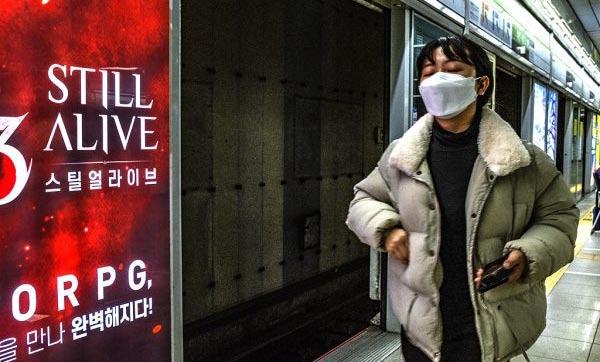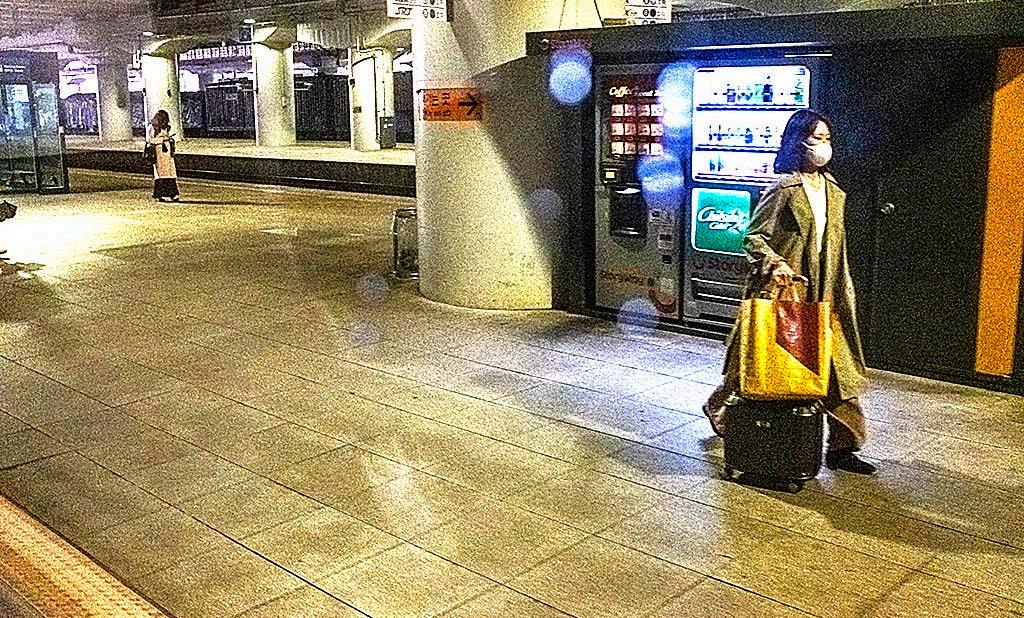
3 minute read
Zombieology Linh Dinh
STILL ALIVE: Walking the streets of Busan, the only fear on his mind is of a wayward virus.
n inh Dinh Zombieology
Advertisement
t should be stressed that the coronavirus is not the ultimate cause of our economic, political and societal unravelling, for we’ve been a dead man walking for a while
As a chicken chomping, coke snorting species, we have three main foes:
1. Beasts more ferocious than us, such as tigers, lions and, well, just about all other animals, since we’re such wimps;
2. Living organisms we can’t even see, such as viruses;
3. Other men, of course, since man is clearly man’s most lethal and sadistic enemy. The first category is nearly extinct, with even the most frightful animals turned into lovable cartoons, for our kids’ amusement.
In the zombie, however, all three threats are combined, since he’s a man, sort of, that acts like a fierce, bonkers beast, and if he bites you, then you’re a gonner, for sure, thanks to his virus laden spit.
Zombies also resonate because they’re contemporary and urbane
cannibals. In torn jeans, hoodies or suits, they’ll eat your flabby ass.
Though literal man eaters have become extremely rare, we know in our bones their taste and tactics have merely been transferred into more elegant and expensive looking gentlemen. Most of us also know we’re being devoured, chunk by gristly chunk, daily.
These cheerful thoughts occur to me because last week, I took a

Two women on the train platform at Daegu, epicentre of the coronavirus outbreak in South Korea.
bullet train from Seoul to Busan, and there’s a pretty damn good zombie movie called Train to Busan. We’re also staggering through a virulent miasma right now, in case you’re Rip Van Winkle, and no, this ain’t no media hoax. Shit’s real. When paradigm shifts, we must readjust our thinking and habits with much clarity, effort and discipline, not that we have a choice. True to its title, nearly all of Train to Busan takes place on a train, and this is obviously symbolic. Before there were planes or trains, ships were common allegorical vehicles, as in Plato’s Ship of Fools, Melville’s Moby Dick, Conrad’s The Nigger of the ‘Narcissus,’ and so on. Floating on a vast unknown, we’re all in this together.
Trains can also be stand ins for the community. Encased, we’re
We’re staggering through a virulent miasma right now, in case you’re ip Van Winkle, and this ain’t no media hoax. hit’s real
being hurled towards a common destiny, though some are reclining in first class or feasting in the bright dining car, while the rest, stiffly upright, are munching on corn chips in the semi dark.
The film’s protagonist is an emotionally dead investment banker. Focusing only on his work, her is already separated from his wife, and barely talks to his small daughter. On the train, he shows no reaction as the first zombie victim runs screaming by, and his face barely registers shock or pain as he hears his mom’s anguished last words over the phone, as she moans, retches and gasps while apparently turning into a zombie. He’s cooler than cool. Redeeming himself, the banker finally learns how to team up with a blue-collar guy to fight off zombies, and they both die while saving others.
Though far less corrupted, his daughter also says nothing as she witnesses her first zombie, just outside the train window, pouncing on a man. It’s the film’s director Yeon Sang-ho’s little joke to have his characters stay placid at the sickest spectacles, but that’s surely the story of our time. We all do this a thousand times each day. Barely responsive, we’re deader than zom








